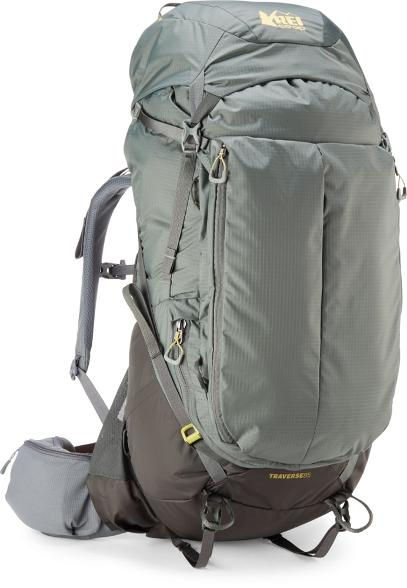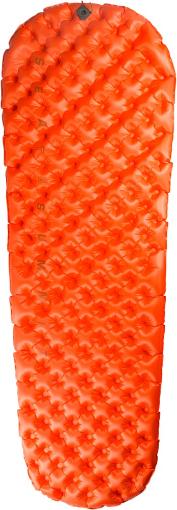PCT: Pre Trail Gear list
- Nolan

- Jan 24, 2019
- 5 min read
Updated: Apr 15, 2019
Whether you are Darwin or Dixie or some random schmo from who-knows-where, everyone always wants to talk gear. It turns out people will talk for hours about why a piece of gear is superior, a terrible idea, or what's new in the ultralight world. We are no exception, but we took a slightly different approach to our gear than the majority of people. We want the best combination of lightweight, functionality, and features while staying cheap. We are willing to sacrifice a little weight for comfort. Alissa and I replaced all of our gear for the PCT and started from scratch. Our goal was to build a good lightweight bag with items that meets all of our needs.
Our Gear
We don't have the exact brand for everything however here is a break down of our gear. If you do have any specific questions let us know!
Cost
This cost breakdown by individual. You can drill into the data to see more details. Please keep in mind this is for 2 people.
Packed Weight
This is our weight for each of our packs. Base weight normally does not include hygiene items, trekking poles, shoes and clothing you are wearing. Our pack weight includes all of these items, meaning our base weight is technically lighter than what's shown below.
The big 4
Tent
There were 4 major factors that played a part in our search for the perfect tent. 1. Cost! (some ultralight tents are crazy expensive)
2. Weight
3. Size (Because we would be sharing the tent together we wanted to ensure that there would be room for both of us to comfortably relax without invading each other's space)
4. Waterproof and durability
We are using the MSR Hubba Hubba. We compared this tents to other popular options like Big Agnes, Nemo Dagger 2, and Zpacks ultralight tents. Aside from price, tents under 2.5 lbs. usually have reviews complaining about their waterproofing, or lack of it. After a long day of hiking, the last thing we want is to settle in a cold, drenched tent.
Tents like the Zpacks ultralight have great reviews on its waterproff-ness, but one feature we are not willing to sacrifice was the tent set up. Although both of us will be traveling with poles, we aren't willing to jump down the ultralight rabbit hole of having our hiking poles as our tent support. We found the Hubba Hubba while visiting our local REI and discovered it met all of our needs. It drops in at 3 lbs. 8 oz. While heavy for one person, two people splitting it makes it <2 lbs. each. In other words, that's just as light per person as any of of those nice, expensive ultralight tents. The tent has fantastic ratings and no complaints about bad waterproofing. We watched and found the tent on sale for $300. That's $100 - $200 dollars less than most of its competitors.
Backpack
We have 2 main goals with our backpacks
1. Comfort (Primarily back/hip support)
2. Pockets to separate items (not too many! Who doesn't love organization?)
After visits to multiple outdoor recreation companies, we narrowed down our list to a few different bags:

Granite Gear Crown2 Weight: 2 lbs. 6.7oz. Back support: Little back support
Price: $199.95
Weight: 4 lbs. 9 oz
Back support: A lot of back support
Price: $270.00
Weight: 4 lbs. 13.4 oz.
Back support: Great back support
Price: $299.95
Weight: 1 lbs. 5 oz.
Back support: Little back support
Price: $325
Weight: 2.02 lbs
Back support: Little to none
Price: $310.00
Weight: 1 lbs. 5 oz.
Weight: 5 lbs. 4 oz.
Cost: $289.00 After trying on this bag, I loved it. I have a terrible back so comfort is a giant factor for me. This bag provides great back support. The Osprey has too much support and the Gregory feels like it fits too low on my back, even after getting it sized. The other bags seemed to lack the back support I need.
The bag contains multiple pockets that allows us to organize gear without having too many pockets.
Like many bags, the hip belt pivots as you walk, providing additional comfort. These bags are our heaviest pieces of gear and is heavy for a thru-hiking bag. However, we are willing to sacrifice a little weight for comfort. (Who knows, we might switch while on the trail)
We took 2 different backpacking trips to test our new bags. Trip one was 6 miles round trip with our old bags. After completing our 6 mile trip Alissa had bruises on her hips, shoulders and some back pain. She was using a slightly older version of the Granite Gear Crown Women's bag. I finished the trip with light shoulder bruising and back pain. I was carrying an ALPs Mountaineering bag.
Trip two was 20 miles round trip with our new REI Co-Op bags. We noticed a quick change when hiking our second trail. With the hip belts that pivot, our load felt lighter than before (even though the packed weight was more) and we noticed that it helped distribute the weight better. I finished the hike with no back pain and no bruising. Alissa finished the hike with light bruising on her hips and no other bruising or pain.
Sleeping Bag
Alissa and I have owned numerous sleeping bags from 30 degree bags to -10 degree bags, but all of our bags were bulky and heavy for a thru-hike. We decided to look into potential options. Our very first time looking into bags, we came across the all too popular Enlightened Revelation. We were sold. We wanted to ensure that we were making the right decision, so we continued our research. For a 10 degree bag, the Enlightened seems to be the lightest and most cost efficient bag/quilt out there.
Sleeping Pad
For us, the sleeping pad was one of our most difficult choices. We spent hours of research on different types. We wanted to ensure 2 things were met.
1. Durability (with backpacking for 6 months we need a pad we that can hold up to some abuse)
2. Warmth (using a quilt as our sleep system, we need a high enough R-value to keep us warm, especially in the Sierra Mountain Range).
We looked into several sleeping pads our top 5 were:
R-value: 3.3
Thickness: 2" Weight: 16.9 oz NeoAir XLite
R-value: 3.2
Thickness: 2.5" Weight: 12 oz
R-value: 25 degrees (Nemo does not provide r-values)
Thickness: 3" Weight: 13.5 oz
notes: This had some poor reviews for durability
R-value: 15 degrees
Thickness: 4.5" Weight: 16 oz
notes: This had some poor reviews for durability Therm-a-Rest Z Lite
R-value: 2.8
Thickness: 0.75" Weight: 14 oz
notes: Alissa owns this already and thinks it's uncomfortable and too low of an R-value.
We eventually narrowed it down to two different pads. Alissa purchased the NeoAir Xlite, and I purchased the Sea to Summit Ultralight.
After 1 use, I returned my Sea to Summit for an Xlite too. The Sea to Summit doesn't have enough padding for me.
Have any questions? Feel free to send us a message or add a comment to the post:)


















Комментарии